How many Prime Ministers did the Queen have? All the PMs the Queen appointed
The Queen appointed Prime Ministers throughout her 70 year reign
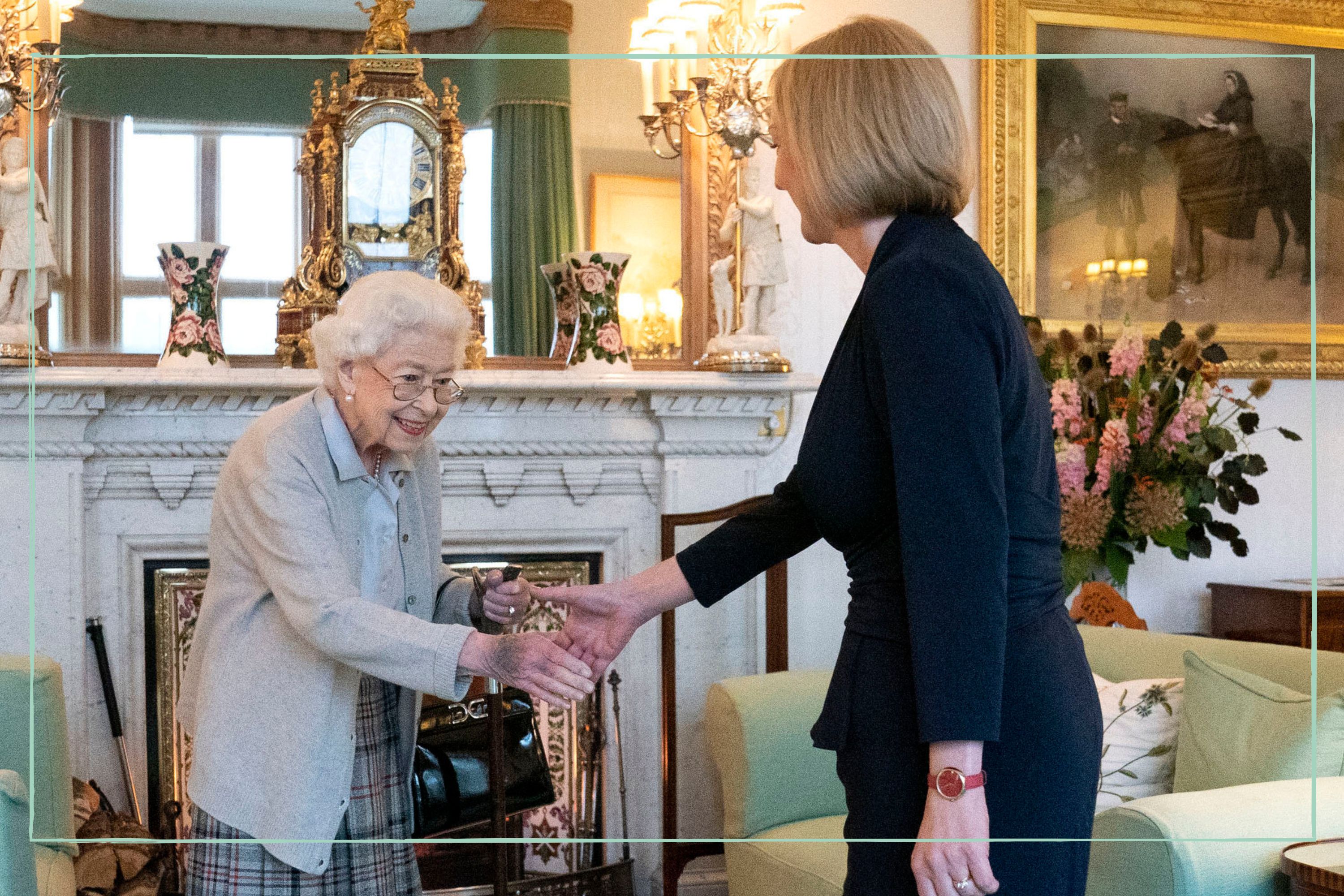

After Liz Truss travelled to Balmoral to be officially appointed by Her Majesty, many are wondering how many Prime Ministers did the Queen have?
It's a busy time in the world of politics, with new PM Liz Truss appointing her new Cabinet ministers to deal with the pile of tasks that have arisen as a result of the cost of living crisis. The public are eager to know more about their new leader's policies, as well as details of her home life such as does she have children.
Most will be hoping that Truss' time in the role will be less drama-ridden than the final few months of her predecessor Boris Johnson's time in office, who's ongoing scandals left many wanting to know if the Queen can sack a Prime Minister. And while it's highly unlikely this would happen, the monarch is responsible for appointing the new PM. And after Liz Truss returned from her meeting at Balmoral, people were keen to know how many other Prime Ministers the Queen had during her reign.
How many Prime Ministers did the Queen have?
Over the course of her time on the throne, the Queen worked with 15 different Prime Ministers, and appointed all but one of them: Winston Churchill.
Churchill was elected for his second stint as Prime Minister in October 1951, just four months before Her Majesty's father, King George VI, died and she became Queen. Churchill was waiting on the tarmac when the Queen stepped of the plane from Kenya, just after her father's sudden death.
🤝 The Queen received Liz Truss at Balmoral Castle today. Her Majesty asked her to form a new Administration. Ms. Truss accepted Her Majesty's offer and was appointed Prime Minister and First Lord of the Treasury. pic.twitter.com/klRwVvEOycSeptember 6, 2022
1. Winston Churchill
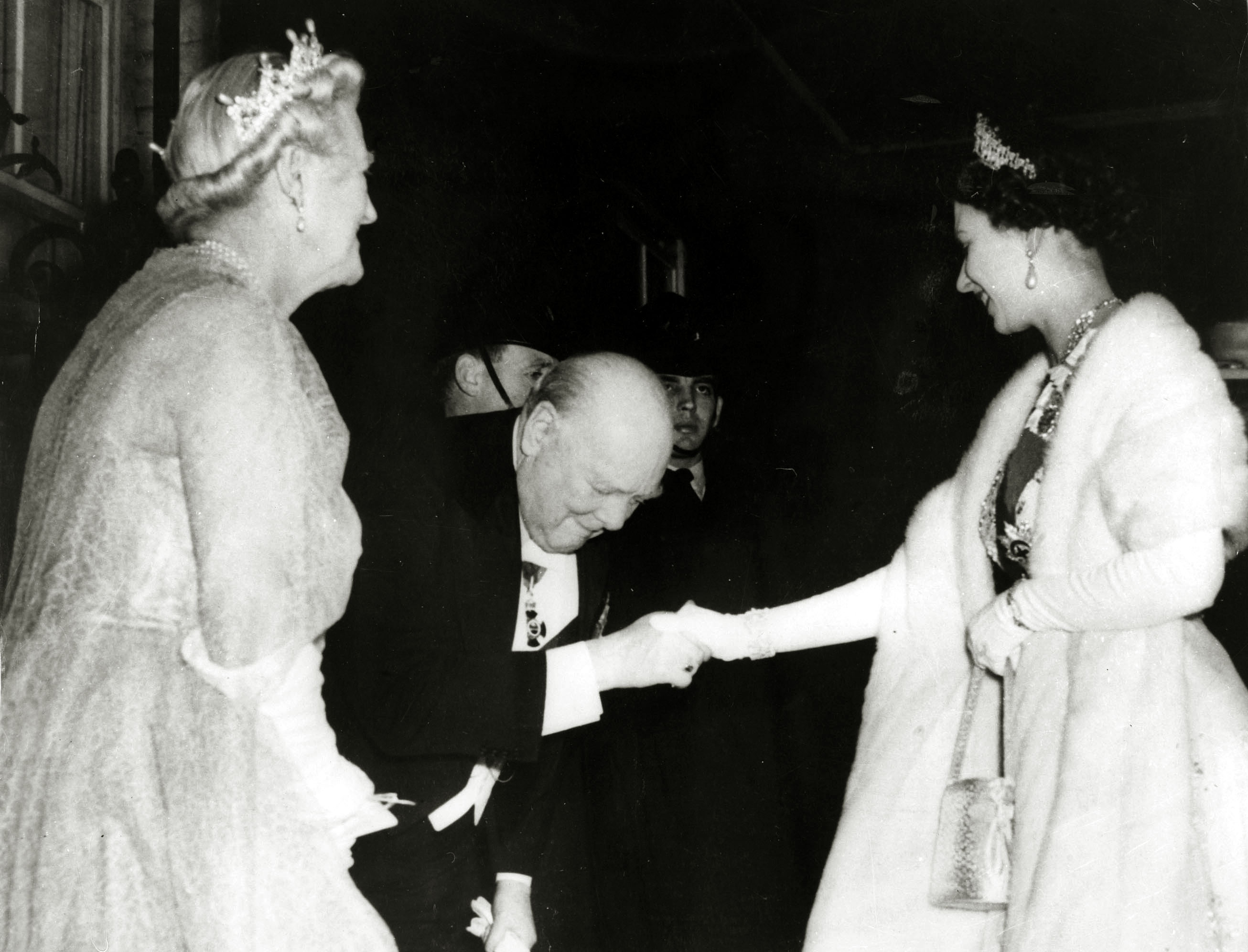
Churchill was the Queen's first and reportedly favourite PM, best known for leading the country through World War Two.
He lost his second election in 1945, but became Prime Minister once again in 1951, shortly before the Queen ascended to the throne.
GoodtoKnow Newsletter
Parenting advice, hot topics, best buys and family finance tips delivered straight to your inbox.
Churchill's second term as PM was marred by health problems, which eventually led him to resign in 1955.
2. Anthony Eden
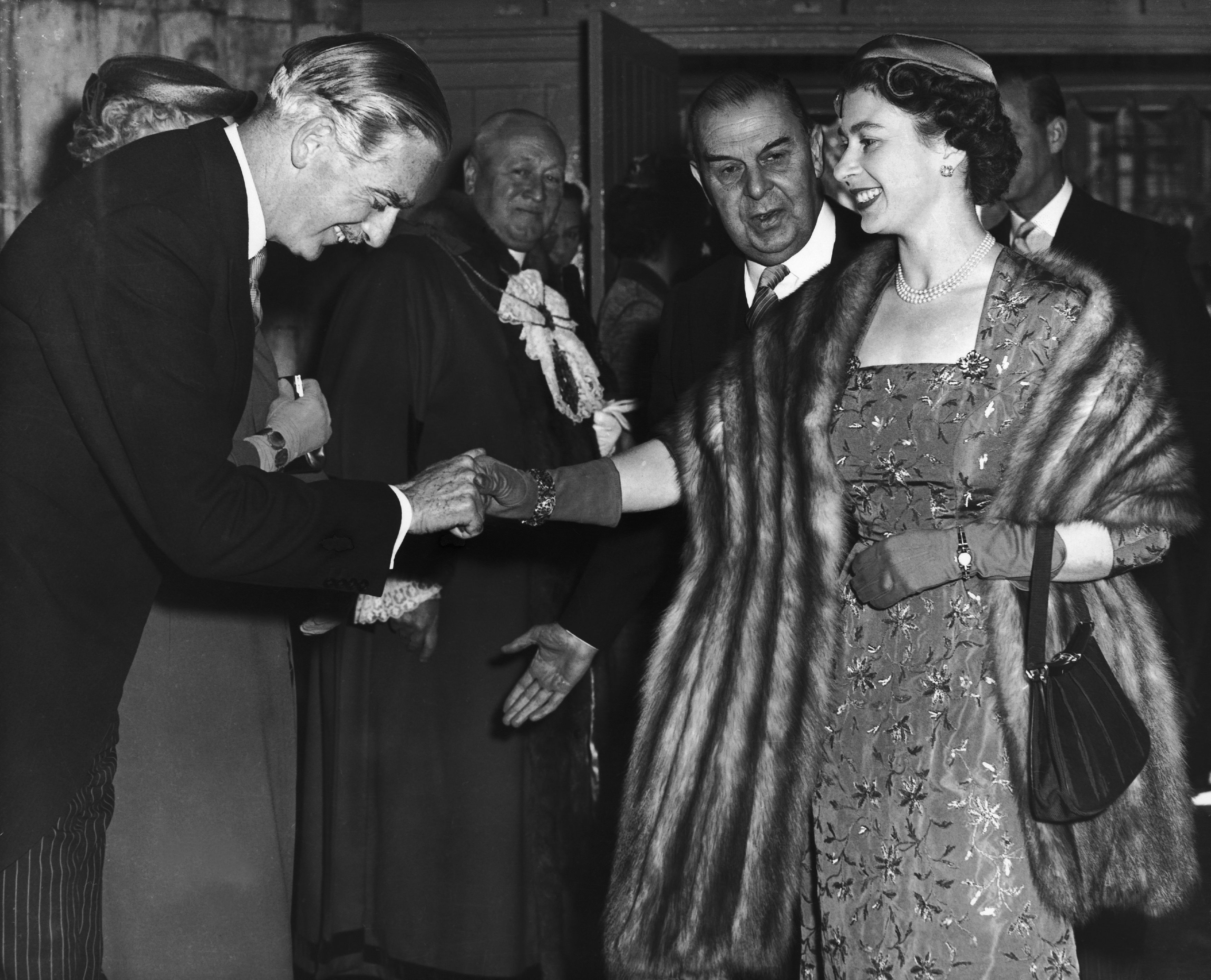
Anthony Eden succeeded Churchill as Conservative leader, but was Prime Minister for just two years before resigning due to ill health.
He was leader during the 1956 Suez crisis, and there was speculation at the time as to how much he confided in the Queen about the government's approach to the crisis.
3. Harold Macmillan
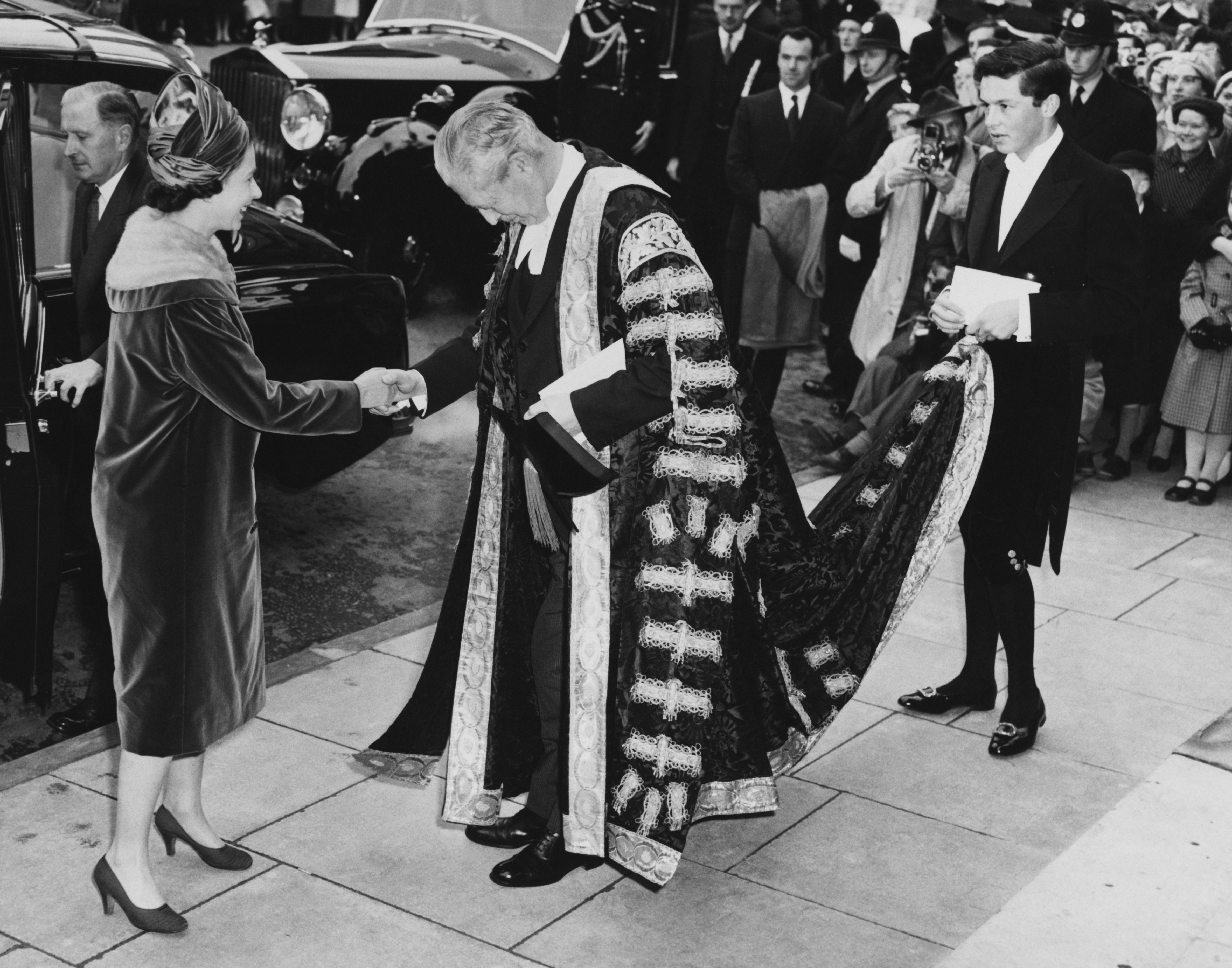
Harold Macmillan was Prime Minister from 1957 to 1963, and is said to have got on well with the Queen.
On one occasion, Her Majesty and the PM were seen together huddled over a transistor radio as US astronaut John Glenn was hurtling through space.
4. Alec Douglas-Home
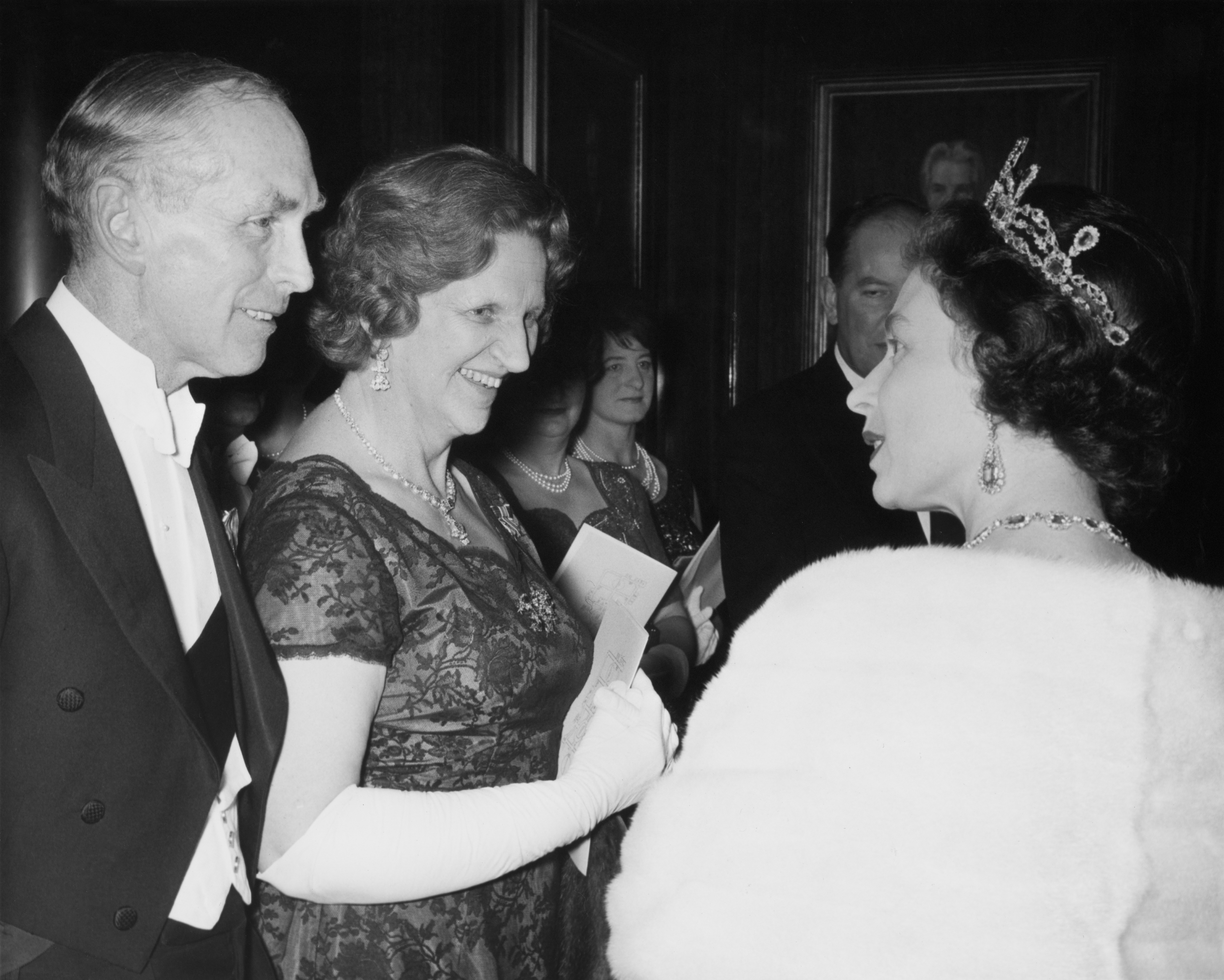
Alec Douglas-Home was only PM for one year, after losing the 1964 election to the Labour Party.
He was a family friend of the Queen before becoming Prime Minister, and the pair reportedly bonded over their love of dogs, with one aide saying: "He was an old friend. They talked about dogs and shooting together. They were both Scottish landowners, the same sort of people, like old schoolfriends."
5. Harold Wilson
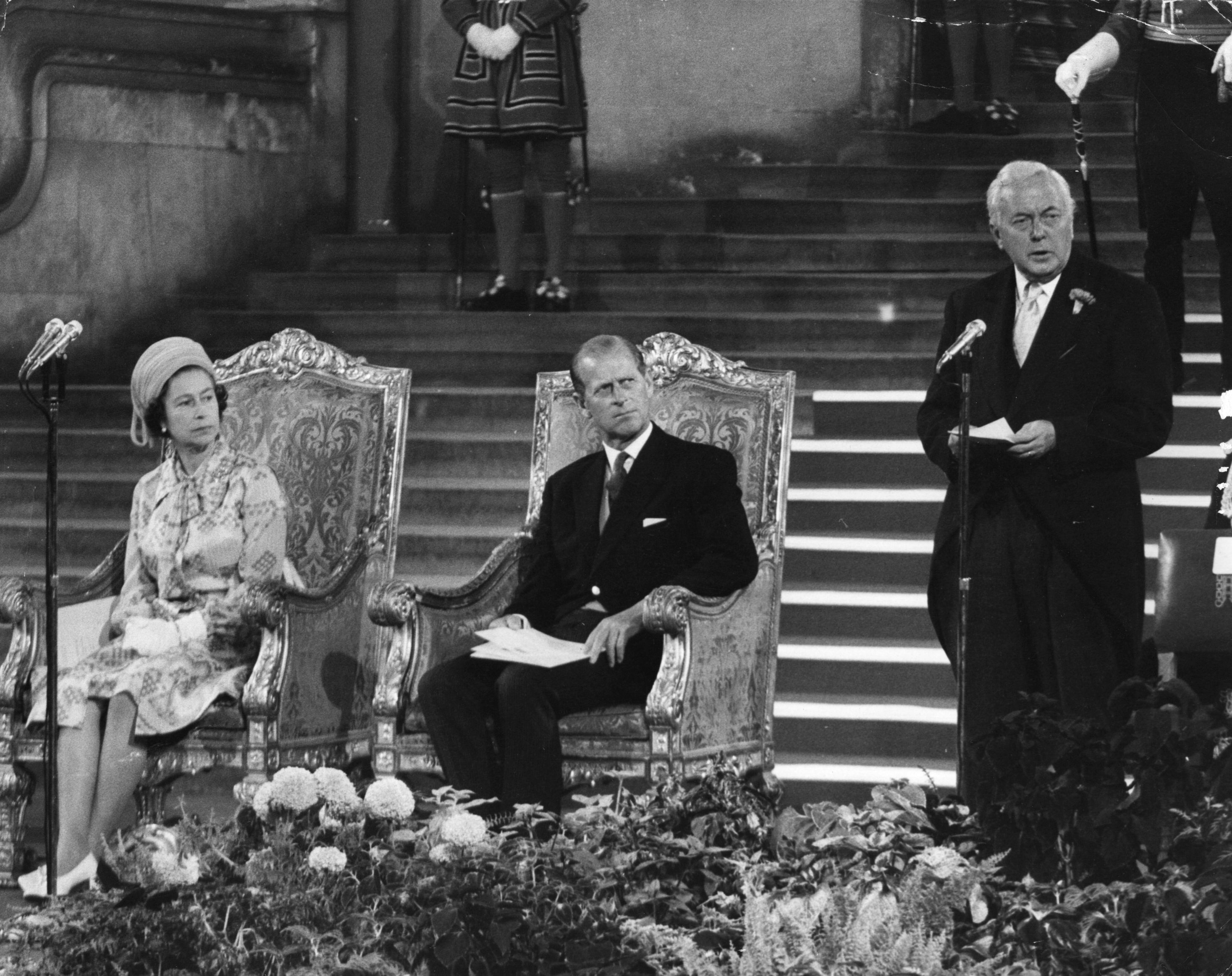
Harold Wilson was the Queen's first Labour Prime Minister, and the pair reportedly got on well.
According to one long-standing member of the Labour Party, Wilson and the Queen 'got on like a house on fire', while author Ben Pimlott said Wilson treated Her Majesty as an equal and talked to her as if she were a member of his cabinet.
Wilson served two terms as PM, 1964-70 and 1974-76.
6. Edward Heath
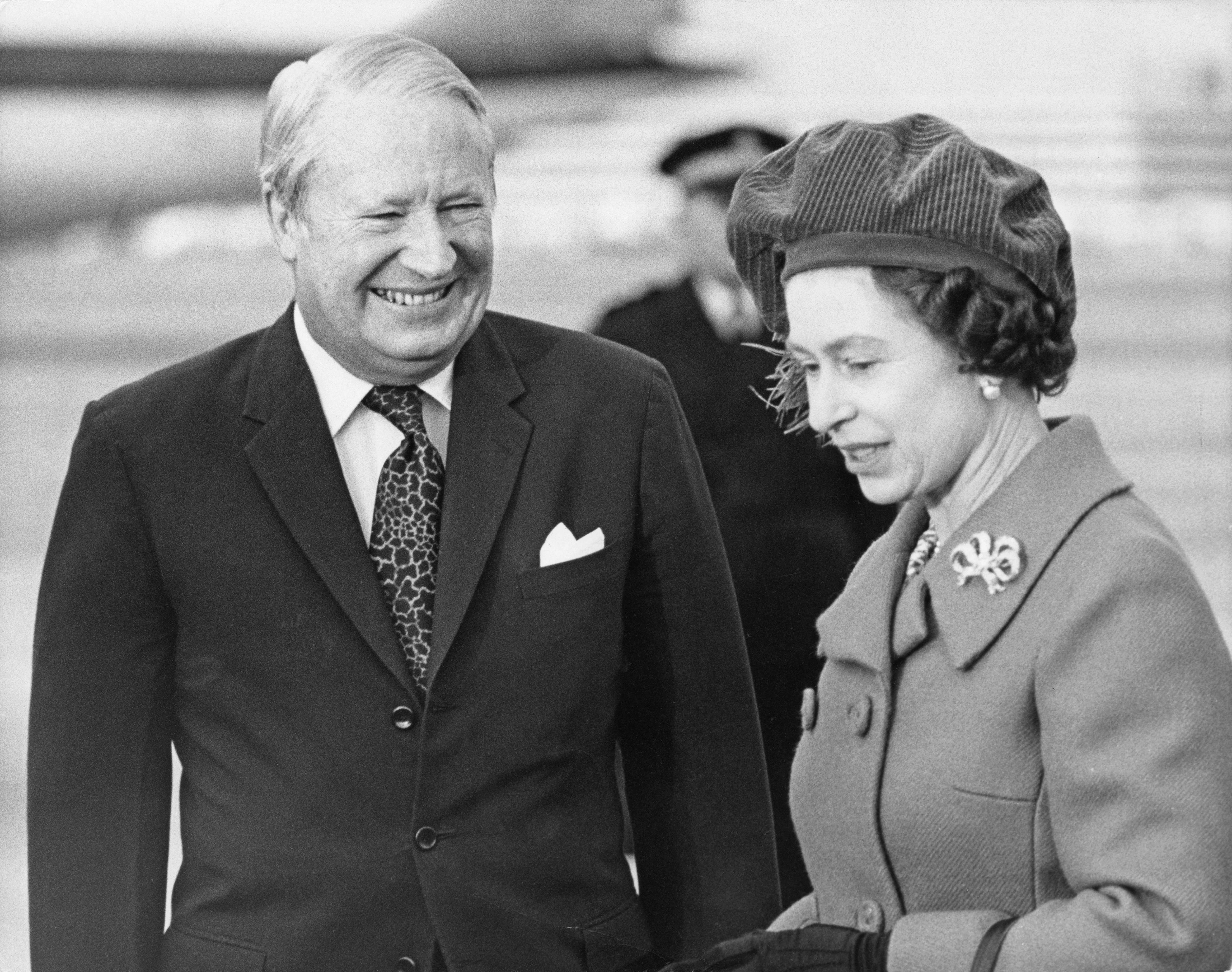
Between Harold Wilson's two terms, Edward Heath ran a Conservative government.
He was said to have struggled with small talk and his weekly meetings with the Queen were described as 'frosty', which may have been because of their differing views on the Commonwealth.
7. James Callaghan
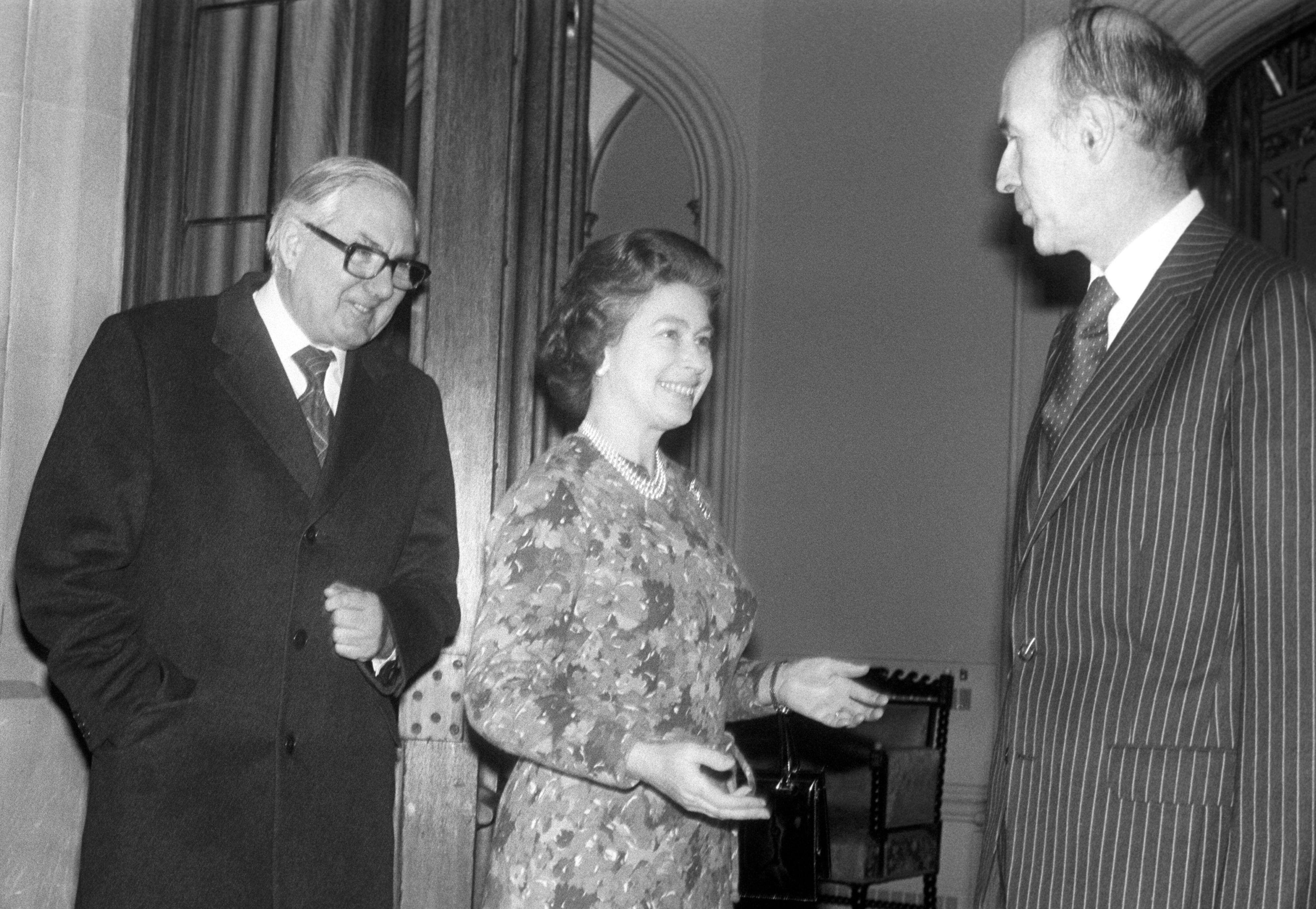
Harold Wilson shocked the nation when he announced his resignation - just two years into his second term - saying he had always planned to step down when he turned 60. James Callaghan then took over as Labour leader.
However, Callaghan lost his position in 1979 after a vote of no confidence following the strikes of ‘the winter of discontent’.
He once said of the Queen: "One of the great things about her is that she always seems able to see the funny side of life. All the conversations were very enjoyable."
8. Margaret Thatcher

Thatcher served as Conservative Prime Minister from 1979-1990. She was the first woman to take on the role, and eventually resigned after being challenged by Michael Heseltine for the Tory leadership.
She and the Queen reportedly clashed over some issues, but maintained a mutual respect for one another.
9. John Major
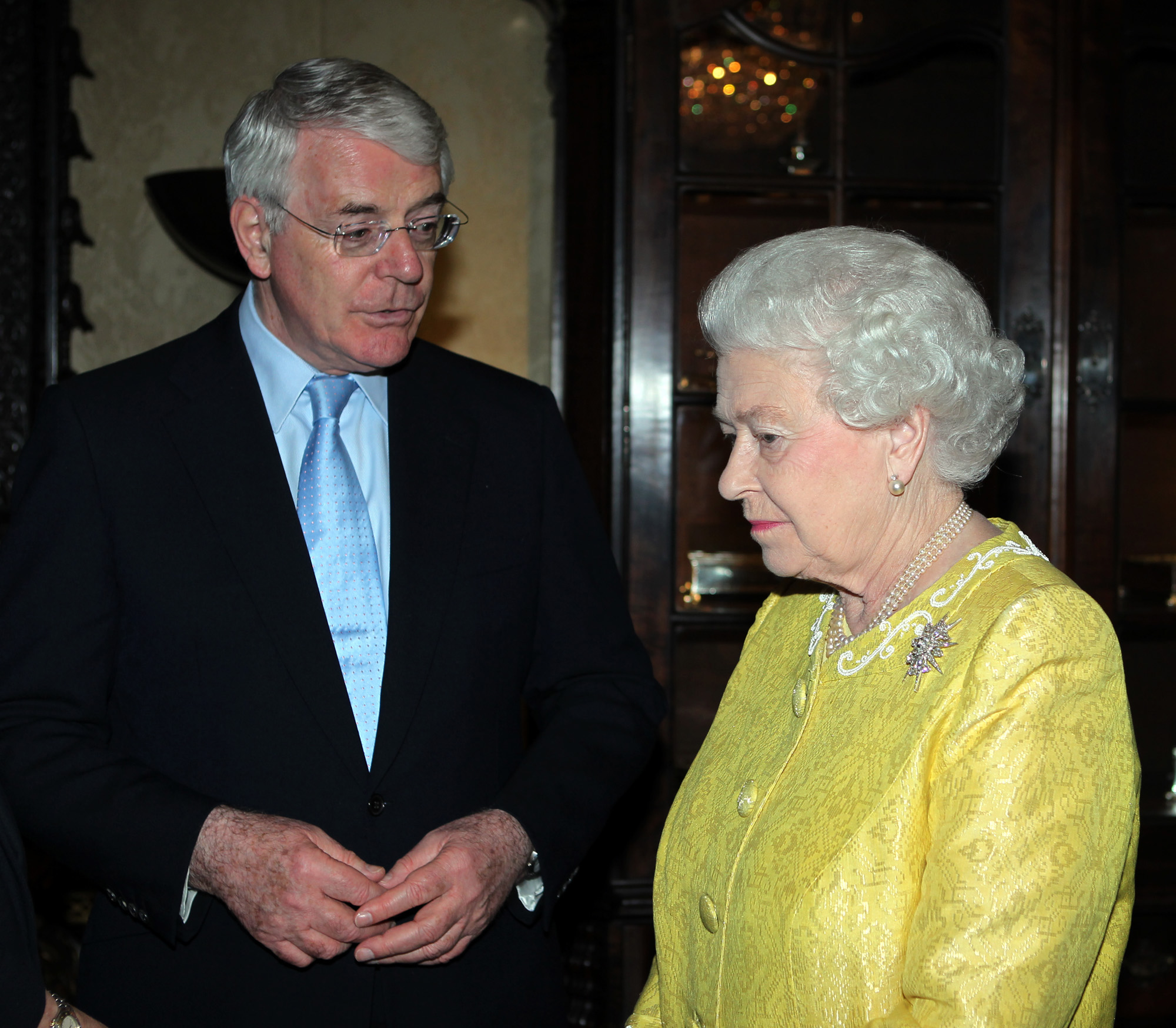
John Major served as Prime Minister from 1990 to 1997 - including during the Queen's 1992 'annus horribilis' (horrible year) - before suffering a major defeat to Labour in a general election.
He is said to have got on well with the Queen and the wider Royal Family.
10. Tony Blair
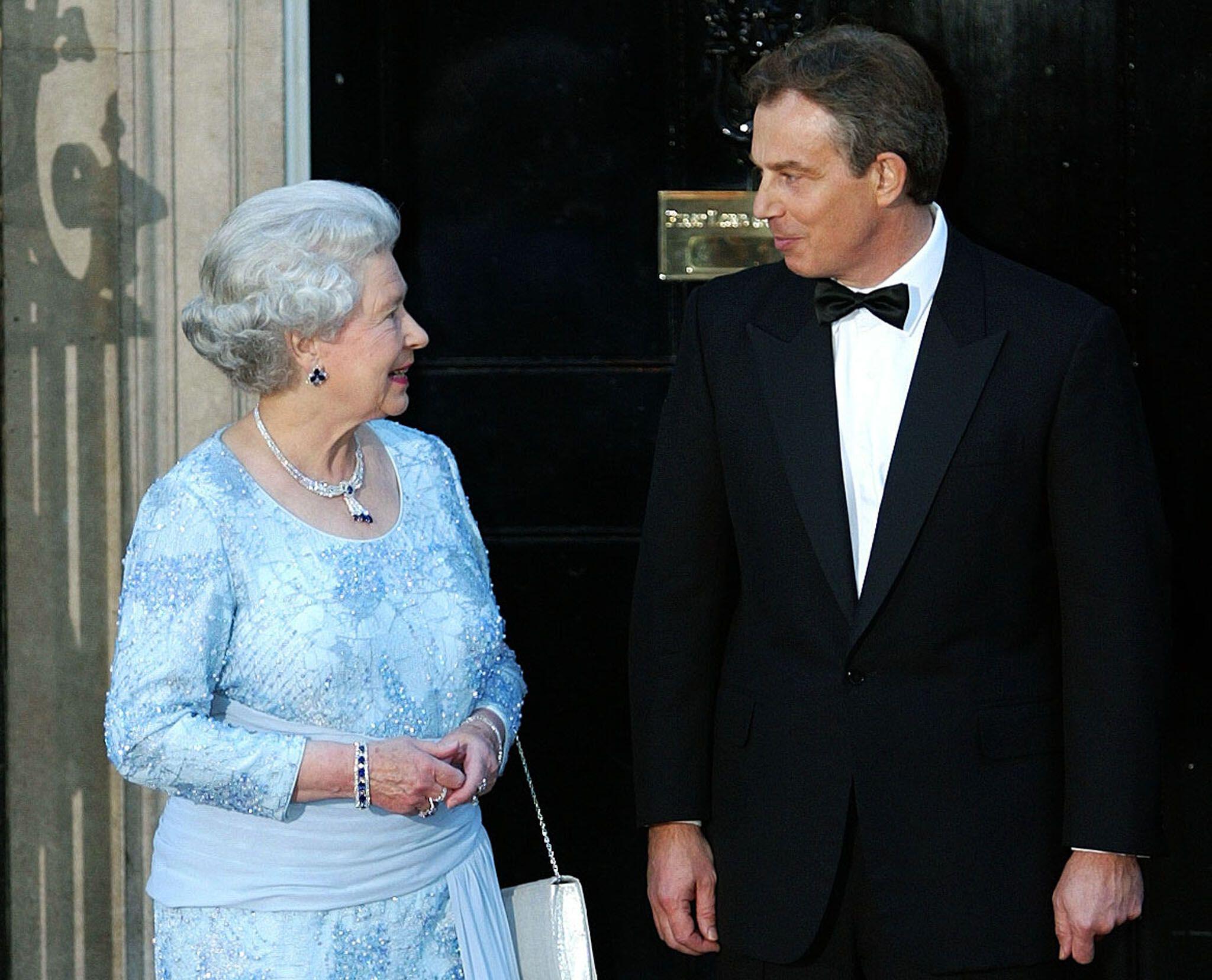
Tony Blair was Prime Minister for ten years and led New Labour, before his resignation in 2007. He is perhaps best remembered for the decision to invade Iraq in 2003.
Blair is said to have rubbed the Royal Family the wrong way when he revealed details of his private conversations with the Queen in his memoirs, published in 2010.
11. Gordon Brown
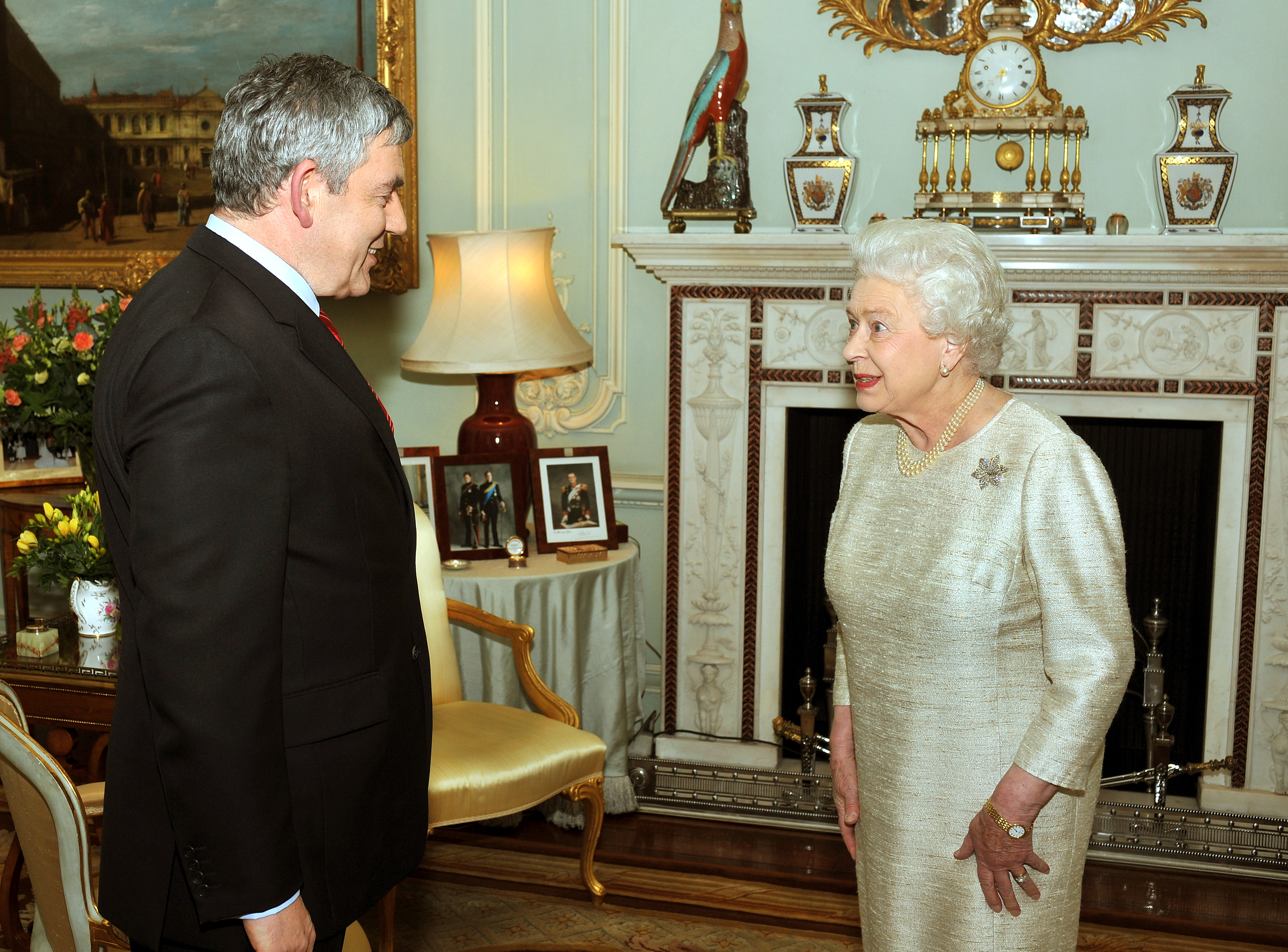
Gordon Brown took over from Tony Blair and led the Labour government for three years, until an electoral defeat in 2010 led to him resigning after his party failed to form a coalition with the Lib Dems.
It doesn't seem that the Queen was fond of Brown, as he - along with Tony Blair - was not invited to Prince William and Kate Middleton's wedding in 2011.
12. David Cameron
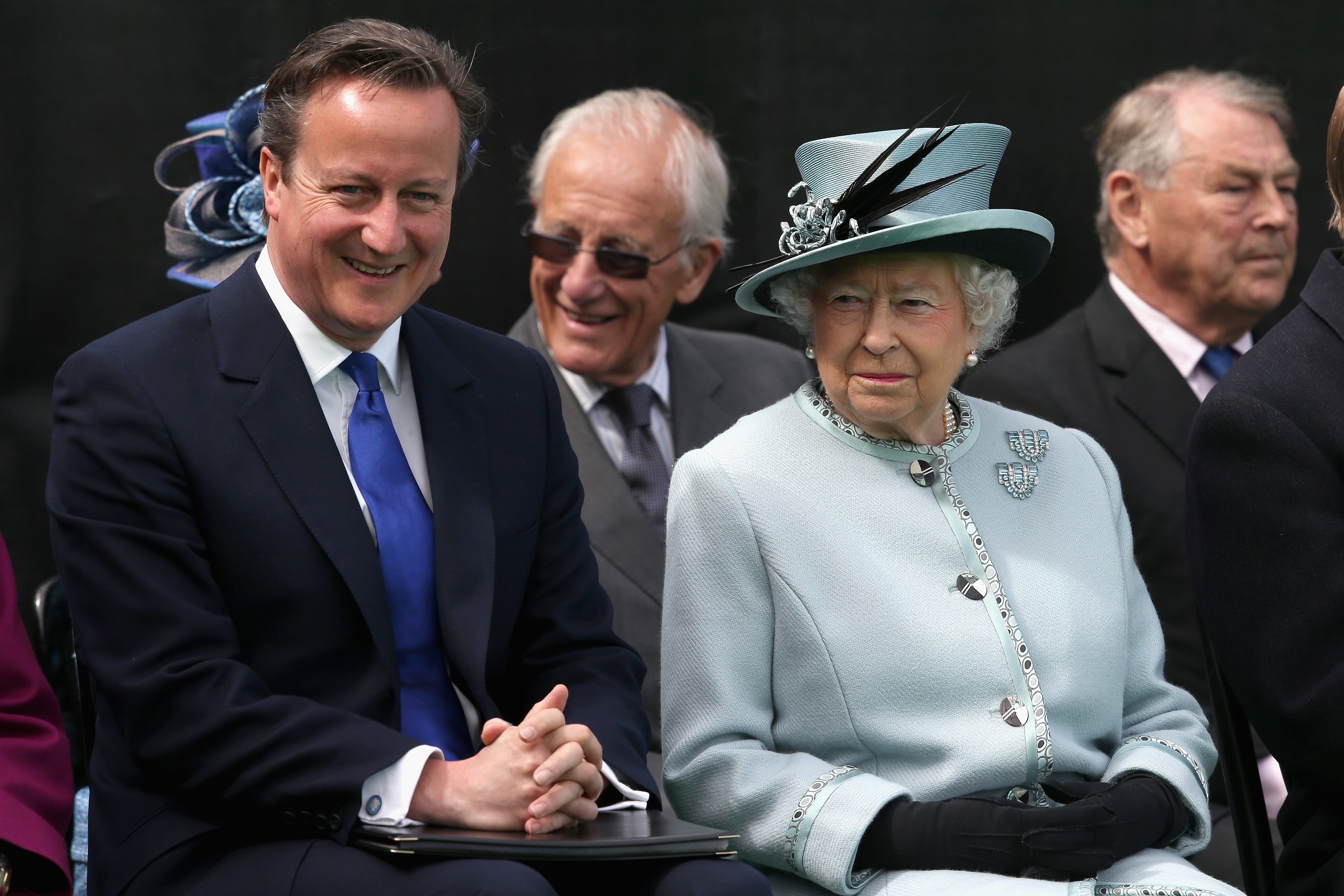
David Cameron was the youngest PM to take office since 1812 when he took on the role in 2010. He was leader during the 2016 EU referendum, after which he resigned due to supporting the remain campaign.
He was once forced to apologise to the Queen, after he was caught on camera telling then New York mayor Michael Bloomberg that Her Majesty had 'purred down the line' when he called to tell her the result of the Scottish independence referendum.
13. Theresa May
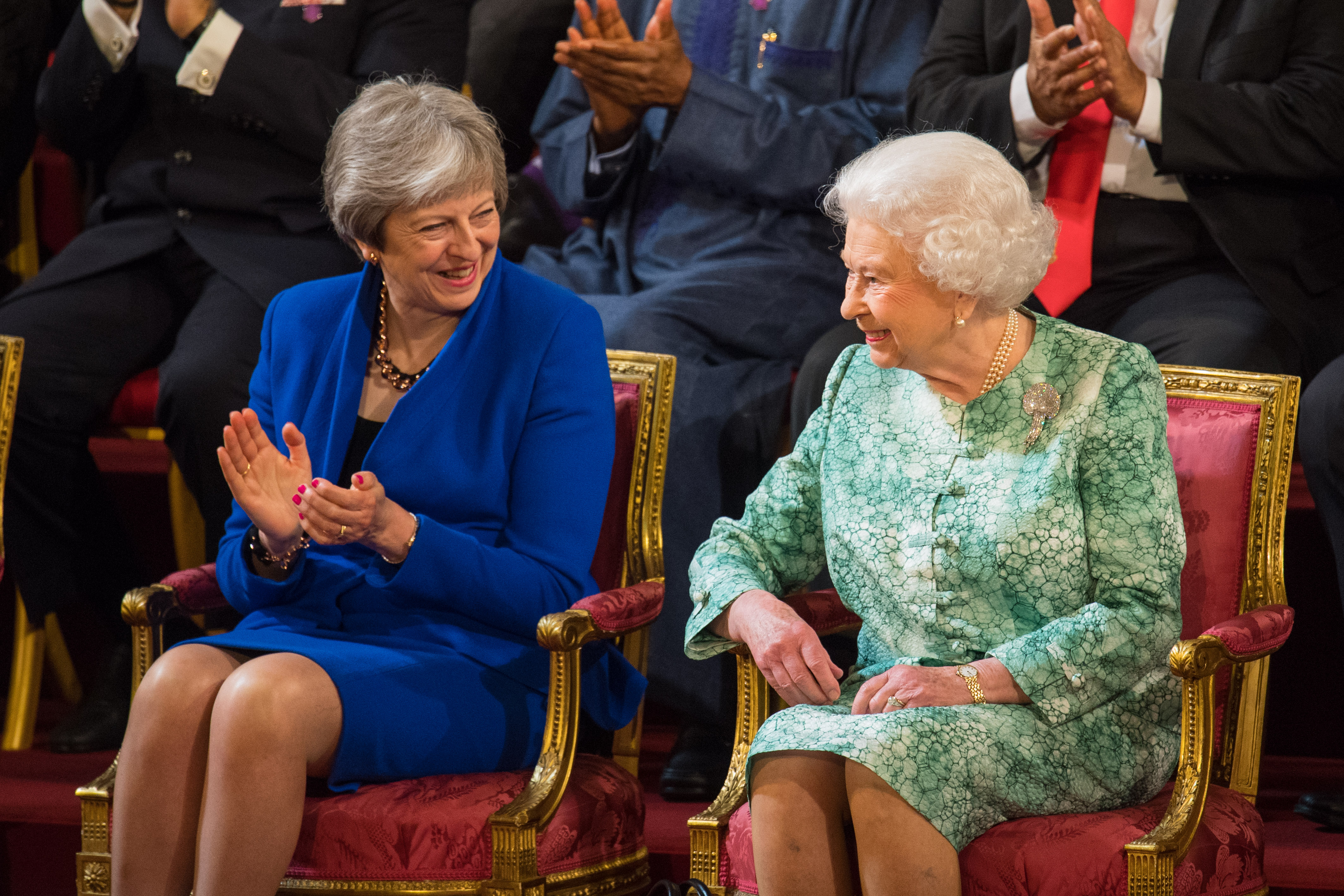
Theresa May took over from David Cameron to become the second female Prime Minister in 2016 and held the post until she resigned in 2019, after to failing to get support for her Brexit deal.
Ahead of the Platinum Jubilee, May told the House of Commons the Queen "has seen prime ministers come and go, I was number 13. She has greeted us all with charm and consideration and with an impressive knowledge and understanding of the issues of the day."
14. Boris Johnson
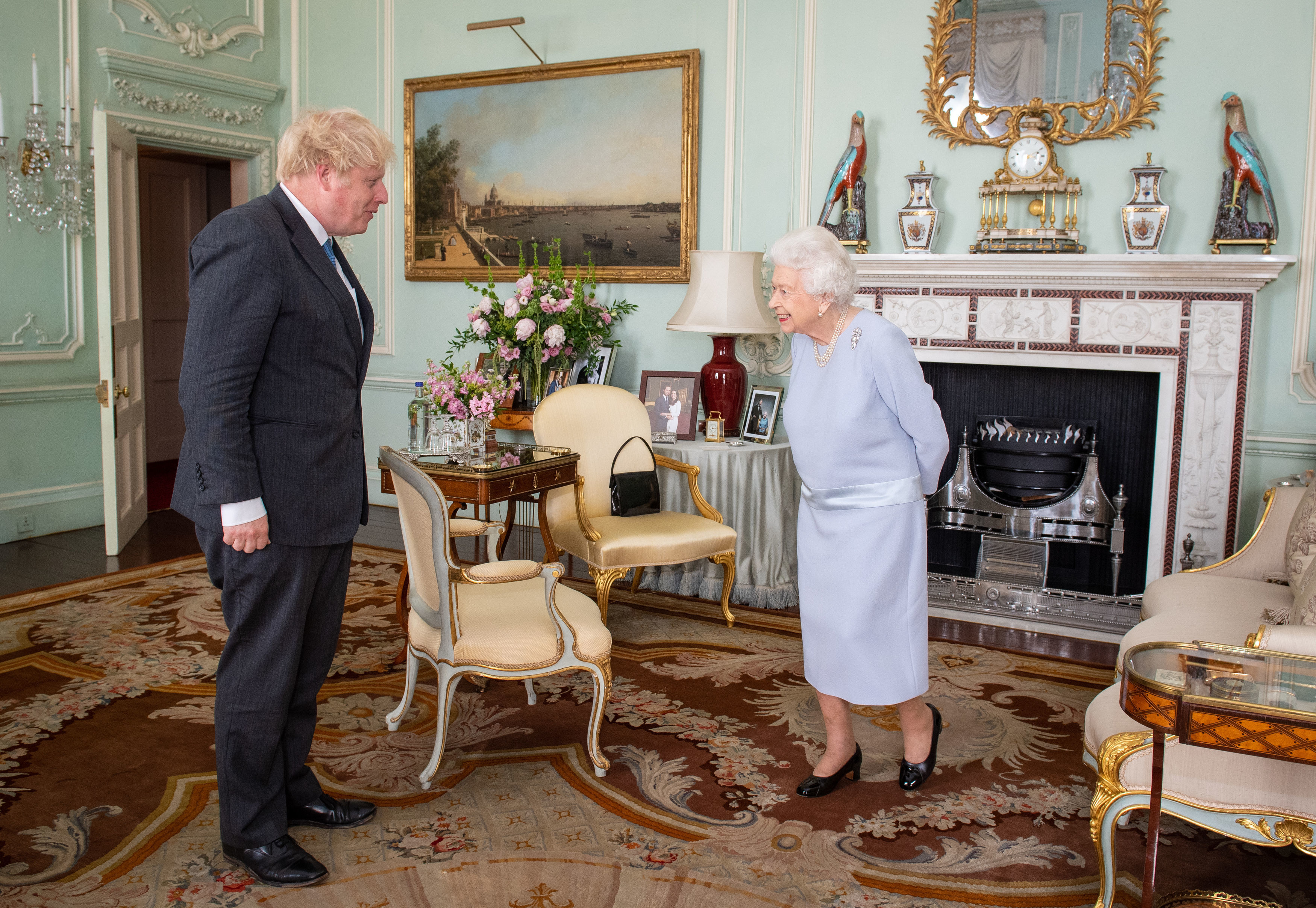
Boris Johnson won the 2019 Conservative leadership contest in 2019, and solidified his mandate with an election a few months later. He remained as PM until July 2022, when he resigned after a a number of scandals rocked his party and a slew of ministers resigned from his government.
Johnson revealed that when he first took on the role the Queen said to him she didn't know 'why anyone would want the job.'
15. Liz Truss

Liz Truss is the most recent Prime Minister to be appointed by the Queen, in September 2022. In a break from tradition, Truss travelled up to Balmoral for the appointment, to accommodate the Queen's episodic mobility issues.
Liz Truss is King Charles' first Prime Minister. But following heavy criticism of her Government and many asking can the King call a general election, speculation is growing as to whether it won't be long before we see the second Prime Minister under the new King.
Who was the Queen's favourite Prime Minister?
Most sources claim that the Queen's first Prime Minister, Winston Churchill, was her favourite.
When he resigned in 1955, she wrote a letter to the wartime PM expressing how much she would miss him, saying no successor "will ever for me be able to hold the place of my first prime minister.”
When she was once asked who has been her favourite PM, the Queen replied: "Winston, of course, because it was always such fun.”
Other Prime Ministers the Queen was said to get on well with include Harold Macmillan, Alec Douglas-Home, Harold Wilson, and John Major - the latter of which was reportedly popular with the Royal Family because of the genuine concern he expressed for the young princes William and Harry, first on the divorce of their parents and then on the death of Princess Diana.
On the other hand, Edward Heath's audiences with the Queen have been described as 'frosty', while Margaret Thatcher famously found her stays at Balmoral rather painful. According to the Queen's biographer, Ben Pimlott, Thatcher referred to the trips to Scotland as 'purgatory'.
Tony Blair also reportedly had a difficult relationship with the Queen, and it's widely thought that this is partly because he persuaded the Queen to address the nation after the death of Diana, following public outcry over her supposed hard-heartedness.
Royal expert Dominic Sandbrook said in an episode of Royals Declassified, "That sort of ritual display of empathy, which [Blair] was very good at, and the Queen wasn’t very good at, that was, he could see, an important part of our political culture that’s becoming.
"Nobody likes to be in somebody else’s debt. And I think the Queen probably did feel simultaneously he had saved her, but at the same time, she didn’t like the fact that he’d done it or like him for it."
How often did the Queen meet with the Prime Minister?
The Queen met with the Prime Minister once a week as part of her official duties, in which the PM kept her informed of government matters.
The meetings usually happened on Wednesdays, and saw the Queen welcome the Prime Minister in Buckingham Palace's audience room, with no special advisers and no record kept of what was said.
In a 1992 documentary, the Queen said of her meetings with Prime Ministers "[they] unburden themselves or tell me what is going on or if they have any problems, and sometimes I can help in some way as well. They know I can be impartial and it is rather nice to feel one is a sponge.
"Occasionally one can put one's point of view and perhaps they have not seen it from that angle."
Video of the Week

Ellie is GoodtoKnow’s Family News Editor and covers all the latest trends in the parenting world - from relationship advice and baby names to wellbeing and self-care ideas for busy mums. Ellie is also an NCTJ-qualified journalist and has a distinction in MA Magazine Journalism from Nottingham Trent University and a first-class degree in Journalism from Cardiff University. Previously, Ellie has worked with BBC Good Food, The Big Issue, and the Nottingham Post, as well as freelancing as an arts and entertainment writer alongside her studies. When she’s not got her nose in a book, you’ll probably find Ellie jogging around her local park, indulging in an insta-worthy restaurant, or watching Netflix’s newest true crime documentary.